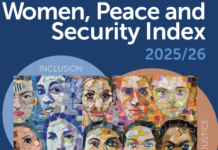Three women across Turkey were killed within a 24-hour period by men from whom they were divorcing or separating, the Evrensel newspaper reported on Monday.
Halil Çağlar killed Yüksel Çağlar, his wife, who had moved in with her parents in the southern province of Gaziantep, along with two of his brothers-in-law before taking his own life. He also seriously injured his daughter and sister-in-law, the report said.
Another man, identified only by the initials T.K., killed his wife Seher Kındaç in Bursa, while Bahar Kanyılmaz was shot dead by her husband Tarık Kanyılmaz in the northern province of Zonguldak. Both women were about to get a divorce.
The report also said that last Friday Ayşegül Çınar was murdered by her partner after turning down his request for reconciliation.
Femicides and violence against women are chronic problems in Turkey, where women are killed, raped or beaten almost every day.
According to the We Will Stop Femicide Platform (Kadın Cinayetlerini Durduracağız Platformu), at least 315 women were murdered by men and 248 women died under suspicious circumstances throughout 2023.
Many critics say the main reason behind the situation is the policies of the Justice and Development Party (AKP) government, which protects violent and abusive men by granting them impunity.
Turkish courts have repeatedly drawn criticism due to their tendency to hand down lenient sentences to offenders, claiming that the crime was “motivated by passion” or by interpreting victims’ silence as consent.
In a move that attracted national and international outrage, Turkish President Recep Tayyip Erdoğan through a presidential decree pulled the country out of an international treaty in March 2021 that requires governments to adopt legislation prosecuting perpetrators of domestic violence and similar abuse as well as marital rape and female genital mutilation.
The Council of Europe Convention on Preventing and Combating Violence against Women and Domestic Violence, better known as the Istanbul Convention, is an international accord designed to protect women’s rights and prevent domestic violence in societies and was opened to the signature of Council of Europe member countries in 2011.
Erdoğan’s allies have been calling for further rollbacks, urging the repeal of a domestic law that stipulates protection mechanisms for women who either have suffered or are at risk of suffering violence.















